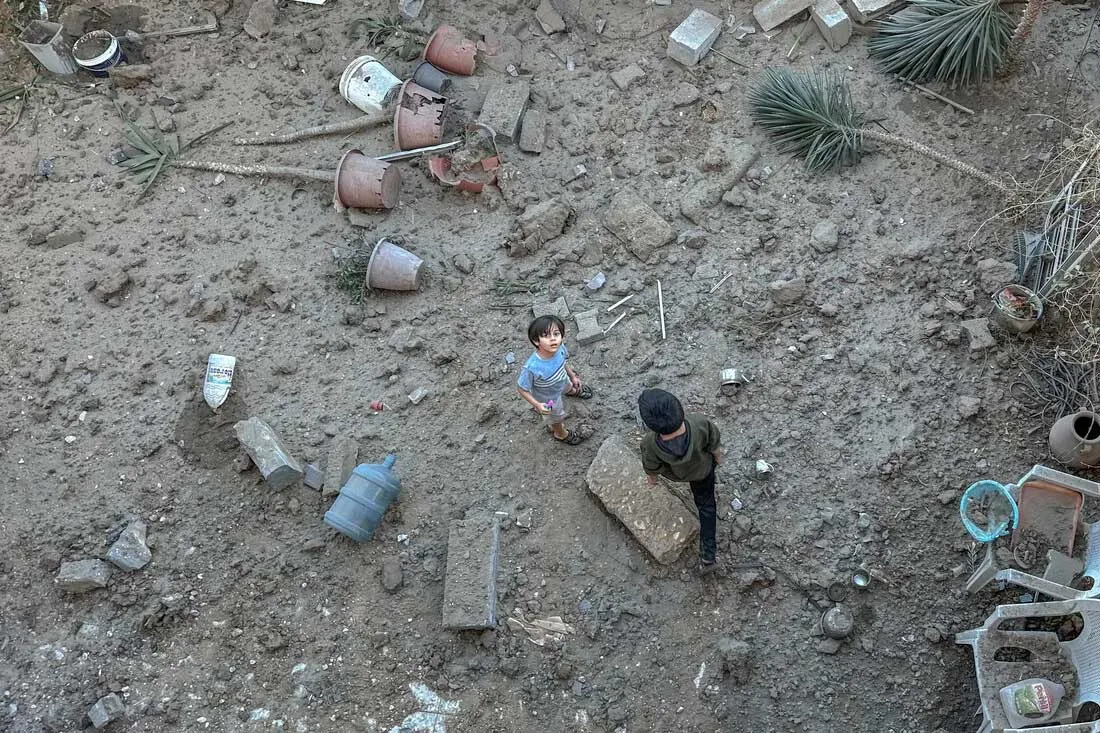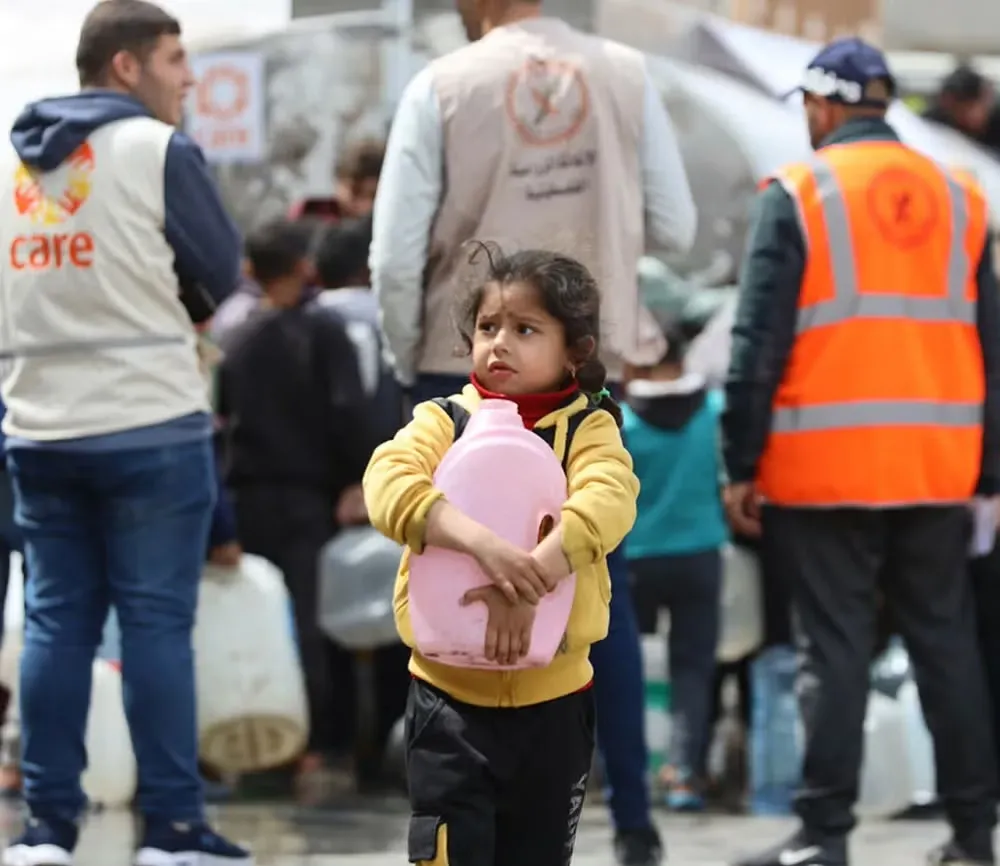How to help West Bank/Gaza – What CARE is doing
CARE has been responding to this emergency since it began. CARE was one of the first international organizations to respond, distributing prepositioned water and medical supplies.
CARE is working in the following areas:
Health: In Gaza, CARE’s primary healthcare center in Deir Al-Balah, which opened last year, continues to provide essential medical services to the community. The center provides prenatal and postnatal care, reproductive health services, nutrition for children under five, primary health for communicable and non-communicable diseases, psychological support, and primary care medications. The clinic also served as one of the polio vaccination sites helping thousands of children get immunized. From March 1, 2025, CARE partner Juzoor deployed a mobile medical team to provide reproductive health services at two centers for internally displaced people in Deir Al-Balah and Khan Younis.
In the West Bank, CARE supports the operation of a mobile clinic, in partnership with OCHA and the Palestinian Medical Relief Society (PMRS). To address the urgent needs of at-risk communities, the clinic delivers services related to primary healthcare, reproductive health, mental health, and psychosocial support. CARE also works with another mobile clinic offering specialized eye care services in the West Bank.
Water, sanitation, and hygiene (WASH): In Gaza, CARE distributes bottled water and hygiene supplies, trucks water to displacement sites and collective IDP (internally displaced people) centers, installs emergency latrines, repairs water and sanitation infrastructure such as desalination unit, and mobile latrine, provides support for solid waste management, and generates awareness around proper hygiene practices.
Women and Girls: In Gaza, CARE distributes dignity kits and works with other humanitarian actors to ensure that protection for women and girls is integrated into the wider humanitarian strategy.
In the West Bank CARE partners with women-led and women’s rights organizations to ensure women play a central role in humanitarian response. These organizations deliver psychosocial support and protection services to displaced women and children, despite ongoing conflict and movement restrictions. They also engage local committees to promote equitable access to services, strengthen women’s roles in emergency response, and establish clear complaint mechanisms. CARE supports these partners to adapt and sustain their work amid challenging conditions.
Shelter: In Gaza, CARE provides basic shelter materials like bedding, kitchen sets, tents, and tarps to help families rebuild their homes – either directly or through cash assistance for building repairs or rent.
In the West Bank, CARE distributes winter shelter materials to families living in difficult conditions.
Food security and livelihoods: In Gaza, CARE provides food baskets, cash assistance, and individual food rations, depending on access and market availability.
In the West Bank, CARE works with local organizations and authorities, and the UN to deliver urgent support to families facing conflict and hardship. CARE provides food parcels to at-risk households, including those displaced from their communities, help farmers restore their greenhouses with essential agricultural supplies. CARE also assists herders with essential livestock inputs such as high-protein fodder and milk powder.
Speaking out: CARE reiterates its call for an immediate and sustained ceasefire, the free flow of humanitarian aid into and across Gaza, the evacuation of the sick and wounded, and the release of all hostages.
We need your help to provide lifesaving assistance to the people affected by this devastating conflict. With your support, we can help meet urgent humanitarian needs.
CARE has worked in Gaza since 1948, and we have trusted and well-established local partnerships across the region.
*Last updated June 2025


